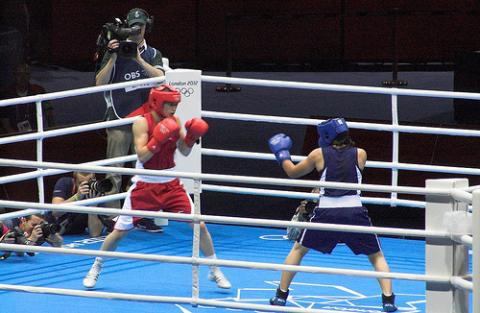Katie's glory hides the truth about women's sport

As soon as all the Katie euphoria dies down, it will remain business as usual for women's sports. By Vincent Browne.
Baron Pierre de Coubertin, the founder of the modern Olympic Games, said that women's sport was "against the laws of nature", and that "the eternal role of [the] woman in this world is to be a companion of the male and mother of the family, and she should be educated towards those functions".
One of the founders of the GAA, Michael Cusack, observed that female Tipperary fans turned up at hurling matches dressed in their "gala attire to flash looks and smiles of approval on their rustic knights". He said that women were among "the most earnest admirers of the play".
Since they could not play the game of hurling itself, Cusack mused that "they could decorate the jerseys for the boys".
In 1929, Pope Pius XI warned that, in athletics and gymnastics, "special precaution must be taken in regard to Christian modesty in the case of girls, inasmuch as it is extremely unbecoming for them to display themselves before the public gaze".
An editorial in the Irish Times, following those Papal remarks, thundered: "In France, Germany and even in England, many girls are devoting themselves to public sports which demand violent exertion and sometimes, it would seem, a notable scantiness in clothing… These performances are done before crowds of male spectators. His Holiness is surely right when he says that there are 'irreconcilable with women's reserve'."
The Pope and the Irish Times missed the real culprit for the emergence of unladylike behaviour: the arrival of the bicycle as a popular mode of transportation. It changed the clothes that women wore - it didn't quite demand a scantiness of clothing but it demanded that clothes be loose enough to enable cycling - and it required women to be athletic and even perspire, hitherto regarded as "unladylike".
Globally, for centuries, athletics and team games were within the "masculine domain". It was only towards the middle of the 19th century that women even attended games in large numbers, but their own participation in sports was limited largely to dancing. It was also only in the late 19th century that women participated in organised sports, mainly golf, archery and croquet. Irish women won the British Ladies Open Golf Championship in 1899, 1900, 1902 and 1903.
It was noted in the book The GAA: A People's History that "man walked on the moon before women played in Croke Park".
The struggle to have women's sports included in the Olympics Games has been a long one. Women's cycling was excluded for many years; women's hockey was admitted only in 1980, whereas men's hockey had been admitted in 1908; there were no women's cycling events until 1988. Netball, one of the most popular women's sports, remains excluded. And, of course, women's boxing was added only this year.
Katie Taylor has broken one of the most enduring stereotypes about women, by competing so successfully in what has been regarded as the stereotypical masculine event. As such, she is deserving of even more tribute than attaches to her victory and her composure. She has shown that, for women, even boxing is not "against the laws of nature".
But there is also an added dimension.
Boxing is typically a working-class sport - I don't believe it is a sport in a single fee-paying school in the country. It has the advantage of being relatively inexpensive for amateurs, at least in the early stages of their careers.
It has also been one of the perceived escape routes for young people from disadvantaged communities out of disadvantage. And because there are so few people with Taylor's dedication, skill and courage, and so few with the back-up support she had from her father and family, for most people that escape route proves blocked.
And even when our boxers prove their mettle in the Olympics and other competitions, the State still fails to endow boxing clubs in disadvantaged areas.
One of the contributors to this neglect has been another neglect. Media neglect of disadvantage is a given, but its neglect of women's sports is less acknowledged.
A research survey conducted in Los Angeles found that, in televised sports news, women were humorous sex objects in the stands but missing as athletes; men's sports received 92% of all airtime afforded to sports, women sports received 5 per cent and gender-neutral sports topics 3%; and when women in sports were covered, gender was verbally and visually marked an average of 60% per game in women's basketball but never in men's games (eg, "the Women's National Championships" compared with "the National Championships").
A survey conducted by the Dublin Sports and Recreational Council in April 2007, entitled The Increasing Invisibility of Women in Irish Sport: Images of Sports Women in Irish Newspapers, found that only 1.2% of photographs of sports personalities published over the period of the study were of women.
And as soon as all the Katie euphoria dies down, it will remain business as usual. {jathumbnailoff}
Image top: cormac70.
